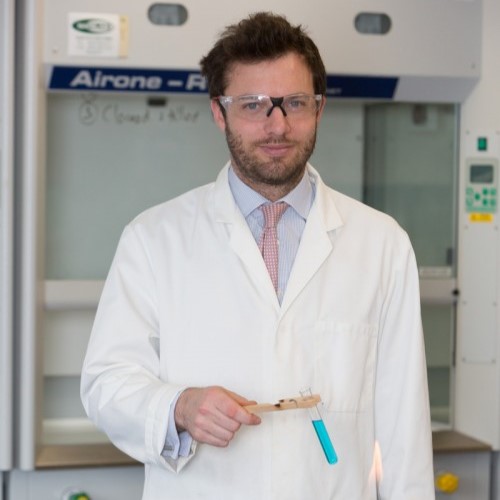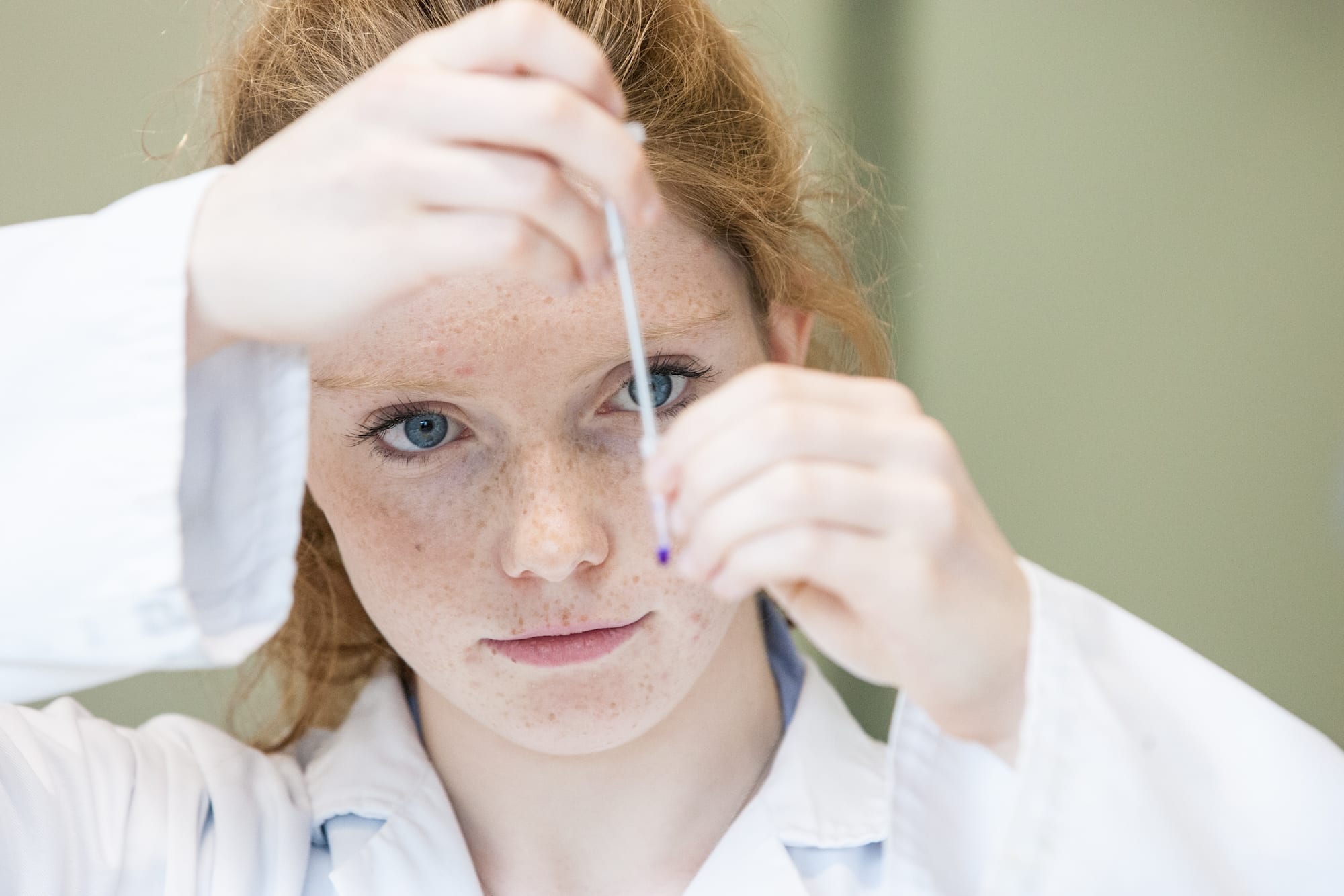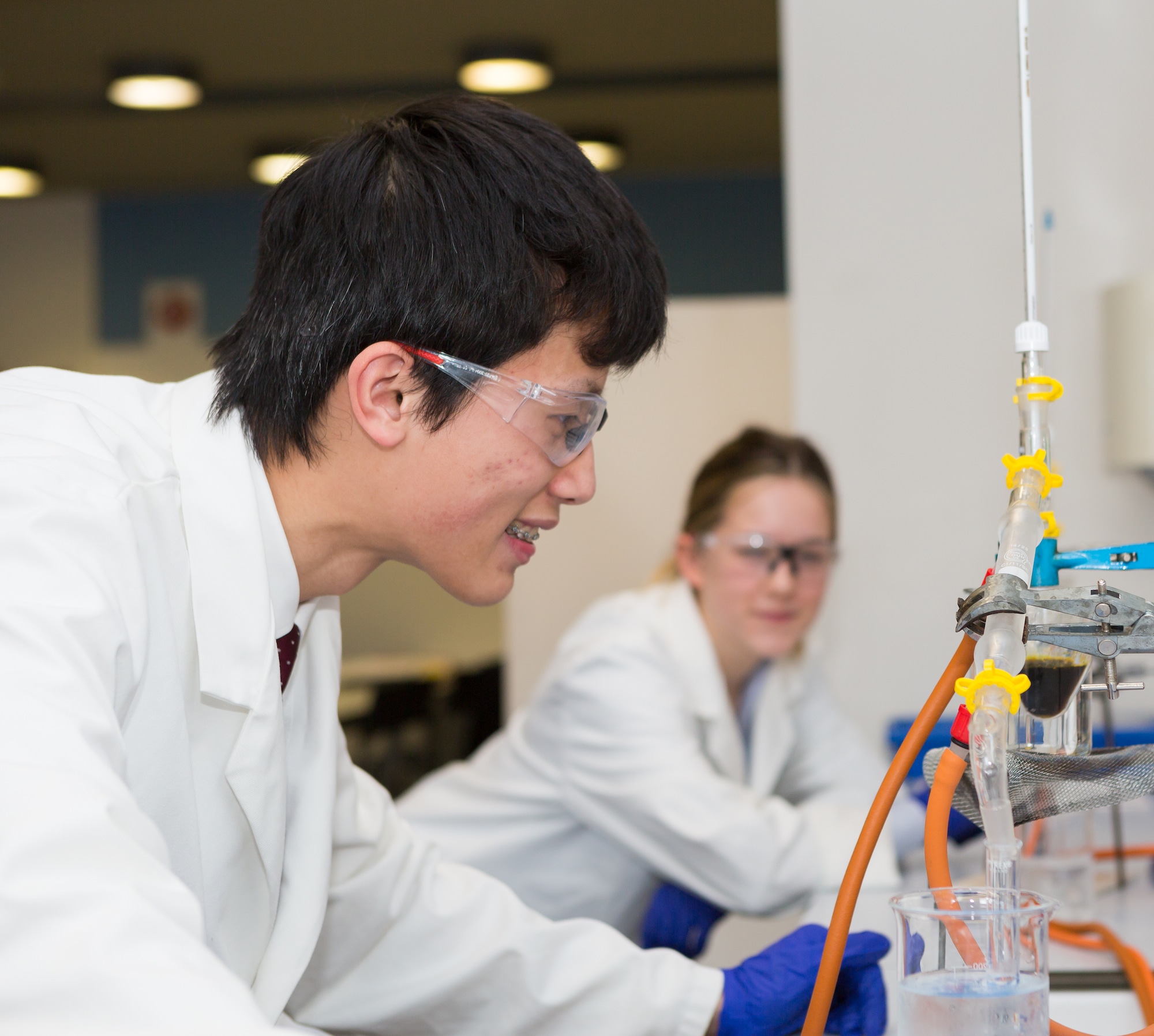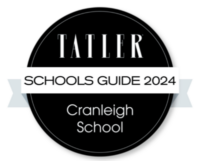As a department, we believe that chemistry should be accessible and enjoyable to all students. Our courses are designed so pupils develop a range of skills to not only aid future study but also future careers; central to this are the development of pupils’ critical thinking and problem solving skills rather than relying upon a body of learnt knowledge.
Of course, it is also important to help pupils discover their own methods for learning factual content. To facilitate this, each pupil is supported with modern technology including a range of different educational APPs (Classkick, Blooket, etc) coupled with classical pen and paper teacher methods.
Throughout each year, pupils develop their practical skills in a safe environment by completing experiments that are tailored to each year group. These experiments are used to either facilitate or reinforce learning as well as establishing a collaborative environment to support and promote communication and teamwork between students.
The Edexcel International GCSE (IGCSE) is taught over the three years of the Lower School. At the end of Year 9, students choose their IGCSE course. There are three available courses:
- Triple Award Science – Biology, Chemistry and Physics are studied and examined separately leading to three separate IGCSE qualifications.
- Double Award Science in 6 (DAS in 6) – Biology, Chemistry and Physics are studied and examined separately, but the marks are combined to give two IGCSE grades. This course gives a good grounding in each of the three sciences but covers some material in less detail.
- Double Award Science in 9 (DAS in 9) – like DAS in 6, except that pupils who find the Sciences difficult have more lesson time with their teachers.
All are linear courses that are examined in the summer of Year 11.
The course covers the following four subject areas:
- Principles of Chemistry
- Physical Chemistry
- Inorganic Chemistry
- Organic Chemistry
The International GCSE courses, whether Double Award or Triple Award, provide an excellent foundation for those pupils wishing to study Chemistry at A Level.
The AQA A Level chemistry course is taught over two years and the Specification provides the basis for an innovative Sixth Form course that has been designed to engage and inspire students.
The exam specification has been developed with input from teachers and universities to enthuse and motivate students and to suit a variety of interests. In addition, there is a strong focus on practical work and developing experimental skills throughout the two years.
The first year of the A Level aims to provide an understanding of the main concepts, which can be applied to the rest of A Level Chemistry and, in essence, to chemistry far beyond this level. It covers atomic structure, bonding and all the main mathematical applications of this subject in terms of energetics and kinetics.
The inorganic chemistry covers Periodicity, the Group 2 and Group 7 elements. Particular attention is paid to the trends which exist within these Groups in terms of atomic radius, first ionisation energy and melting point. There is a large amount of organic chemistry which builds on GCSE. You will study reaction mechanisms, the industrial importance of organic compounds and be introduced to organic analysis and structure determination.
In the second year, the energetics and kinetics studied in the first year are extended to include Born-Haber cycles and entropy changes associated with a wide range of chemical reactions. The other part of the module deals with advanced redox reactions and electrochemical cells. We will look at acids and bases in detail and cover different types of titration and buffer solutions. Inorganic chemistry covers the transition metals and the reactions of ions in aqueous solution. The second year also includes a large amount of advanced organic chemistry to study; in particular nitrogen-based chemistry and aromatic chemistry are studied in great detail.
Two papers are used to examine the material detailed above, with a third paper examining all practical skills and this third paper is synoptic across the whole of the two-year course.
Practical work is extensive and closely integrated with the course material and although laboratory work is not formally examined you are expected to complete 12 compulsory practicals that will equip you with the skills to perform a variety of practical techniques. There will be exam questions based upon these practicals.
Trips and Events
Depending on dates, in recent years there have been a number of trips to “Science: Live” and “Science in Action” events in London and, for the first time in a number of years, an overseas science trip to Florida is planned for Easter 2024.
Chemistry students enter the RSC Chemistry Challenge (Year 10) and the Cambridge Chemistry Challenge Challenge (Sixth Form) and the UK Chemistry Olympiad (Sixth Form).
Beyond School
An A Level in Chemistry leads to a number of related Undergraduate programmes. In recent years, for example, A Level Chemists have gone on to study: Chemistry, Chemical Engineering, Biochemistry, Medicine, Material & Science Engineering, and Veterinary Science.
An A Level in Chemistry also facilitates access to a range of unrelated degree options. Recent A Level Chemists have pursued undergraduate degree programmes in, for example: Business, Economics, Classical Studies, General Engineering, Marine Biology, Environmental Geoscience, Ecology & Conservation, Data Science, Biomedical Engineering, Psychology and Aerospace Engineering.
Head of Chemistry
Ed Peerless
Head of Chemistry












